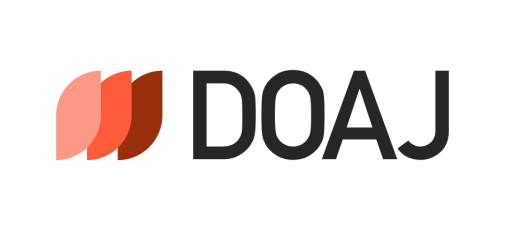Perbedaan Self-regulated Learning Siswa Sekolah Menengah Kejuruan berdasarkan Jenis Kelamin
Abstract
Abstract: The purpose of this study was to identify the differences in self-regulated learning of male and female students in Sekolah Menengah Kejuruan Muhammadiyah in Yogyakarta, Special Region of Yogyakarta, Indonesia. This quantitative study using comparative method involving 414 students consisting of 226 male students and 188 female students as sample. The sample selection used Stratified Random Sampling technique. The instrument was the Self-regulated Learning Scale. To identify the differences in self-regulated learning of male and female students, Independent Sample Test were used. The results showed that there were significant differences between self-regulated learning of male and female students at Sekolah Menengah Kejuruan Muhammadiyah in Yogyakarta. And, self-regulated learning of female student was higher than male students. The particular study recommended the need for counseling services to improve student self-regulated learning.
Abstrak: Tujuan penelitian ini adalah untuk mengidentifikasi perbedaan self-regulated learning siswa laki-laki dan perempuan di Sekolah Menengah Kejuruan (SMK) Muhammadiyah Kota Yogyakarta, Daerah Istimewa Yogyakarta, Indonesia. Penelitian kuantitatif menggunakan metode komparatif ini melibatkan 414 siswa yang terdiri dari 226 siswa laki-laki dan 188 siswa perempuan sebagai sampel. Pemilihan sampel menggunakan teknik Stratified Random Sampling. Instrumen yang digunakan adalah Skala Self-regulated Learning. Analisis Independent Sample Test digunakan untuk mengidentifikasi perbedaan self-regulated learning siswa laki-laki dan perempuan. Hasil menunjukkan bahwa terdapat perbedaan yang signifikan antara self-regulated learning siswa laki-laki dan siswa perempuan di SMK Muhammadiyah Yogyakarta, dimana self-regulated learning siswa perempuan lebih tinggi. Penelitian ini merekomendasikan perlu adanya layanan konseling untuk meningkatkan self-regulated learning siswa.
Keywords
Full Text:
PDFReferences
Aji, R. (2010). Hubungan antara Locus of Control Internal dengan Kematangan Karir pada Siswa Kelas XII SMK N 4 Purworejo. (Doctoral dissertation) Universitas Diponegoro.
Alhadi, S., & Saputra, W. N. E. (2017). The Relationship between Learning Motivation and Learning Outcome of Junior High School Students in Yogyakarta.
Alhadi, S., Saputra, W., & Supriyanto, A. (2018). The Analysis of Validity and Reliability of Self-regulated Learning Scale. In Proceedings of the 1st International Conference on Education Innovation (ICEI 2017). Paris, France: Atlantis Press. https://doi.org/10.2991/icei-17.2018.74
Azevedo, R., Johnson, A., Chauncey, A., & Burkett, C. (2010). Self-regulated Learning with MetaTutor: Advancing the Science of Learning with MetaCognitive Tools. In New Science of Learning (pp. 225–247). Springer.
Balkis, M., & Duru, E. (2016). Procrastination, Self-regulation Failure, Academic Life Satisfaction, and Affective Well-being: Underregulation or Misregulation Form. European Journal of Psychology of Education, 31(3), 439–459. https://doi.org/10.1007/s10212-015-0266-5
Bembenutty, H. (2007). Self-regulation of Learning and Academic Delay of Gratification: Gender and Ethnic Differences among College Students. Journal of Advanced Academics, 18(4), 586–616.
Bidjerano, T. (2005). Gender Differences in Self-Regulated Learning.
Broadbent, J., & Poon, W. L. (2015). Self-regulated Learning Strategies & Academic Achievement in Online Higher Education Learning Environments: A Systematic Review. The Internet and Higher Education, 27, 1–13.
Clark, I. (2012). Formative Assessment: Assessment is For Self-regulated Learning. Educational Psychology Review, 24(2), 205–249.
Corkin, D. M., Shirley, L. Y., & Lindt, S. F. (2011). Comparing Active Delay and Procrastination From A Self-regulated Learning Perspective. Learning and Individual Differences, 21(5), 602–606.
Dent, A. L., & Koenka, A. C. (2016). The Relation Between Self-regulated Learning and Academic Achievement Across Childhood and Adolescence: A Meta-analysis. Educational Psychology Review, 28(3), 425–474.
Efklides, A. (2011). Interactions of Metacognition with Motivation and Affect in Self-regulated Learning: The MASRL Model. Educational Psychologist, 46(1), 6–25.
Fan, W., & Williams, C. M. (2010). The Effects of Parental Involvement on Students’ Academic Self-efficacy, Engagement and Intrinsic Motivation. Educational Psychology, 30(1), 53–74.
Froiland, J. M., Oros, E., Smith, L., & Hirchert, T. (2012). Intrinsic Motivation to Learn: The Nexus between Psychological Health and Academic Success. Contemporary School Psychology: Formerly” The California School Psychologist”, 16(1), 91–100.
Hong, J.-C., Hwang, M.-Y., Kuo, Y.-C., & Hsu, W.-Y. (2015). Parental Monitoring and Helicopter Parenting Relevant to Vocational Student’s Procrastination and Self-regulated Learning. Learning and Individual Differences, 42, 139–146. https://doi.org/10.1016/j.lindif.2015.08.003
Jarkawi, J., Ridhani, A. R., & Susanto, D. (2017). Strategi Bimbingan dan Konseling Karier Bermutu pada Sekolah Menengah Kejuruan Syuhada Banjarmasin. Jurnal Kajian Bimbingan dan Konseling, 2(3), 123–130. https://doi.org/dx.doi.org/10.17977/um001v2i32017p123
Juwitaningrum, I. (2013). Program Bimbingan Karir untuk Meningkatkan Kematangan Karir Siswa SMK. PSIKOPEDAGOGIA Jurnal Bimbingan dan Konseling, 2(2), 132–147. https://doi.org/10.12928/psikopedagogia.v2i2.2580
Kitsantas, A., Steen, S., & Huie, F. (2017). The Role of Self-regulated Strategies and Goal Orientation in Predicting Achievement of Elementary School Children. International Electronic Journal of Elementary Education, 2(1), 65–81.
Lestari, I., & Siswanto, B. T. (2015). Pengaruh Pengalaman Prakerin, Hasil Belajar Produktif dan Dukungan Sosial Terhadap Kesiapan Kerja Siswa SMK. Jurnal Pendidikan Vokasi, 5(2), 183–194.
Lindner, R. W., & Harris, B. (1993). Self-Regulated Learning: Its Assessment and Instructional Implications. Educational Research Quarterly, 16(2), 29–37.
Logan, S., Medford, E., & Hughes, N. (2011). The Importance of Intrinsic Motivation for High and Low Ability Readers’ Reading Comprehension Performance. Learning and Individual Differences, 21(1), 124–128.
Munawaroh, M. L., Alhadi, S., & Saputra, W. N. E. (2017). Tingkat Prokrastinasi Akademik Siswa Sekolah Menengah Pertama di Kota Yogyakarta. Jurnal Kajian Bimbingan Dan Konseling, 2(1), 26–31.
Niehaus, K., Rudasill, K. M., & Adelson, J. L. (2012). Self-efficacy, Intrinsic Motivation, and Academic Outcomes among Latino Middle School Students Participating in An After-school Program. Hispanic Journal of Behavioral Sciences, 34(1), 118–136.
Niemivirta, M. (1997). Gender Differences in Motivational-Cognitive Patterns of Self-Regulated Learning.
Palmer, R. T., Davis, R. J., & Maramba, D. C. (2010). Role of An HBCU in Supporting Academic Success for Underprepared Black Males. Negro Educational Review, 61(1–4), 85.
Palmer, R. T., Davis, R. J., & Thompson, T. (2010). Theory Meets Practice: HBCU Initiatives that Promote Academic Success among African Americans in STEM. Journal of College Student Development, 51(4), 440–443.
Rachmah, D. N. (2015). Regulasi Diri dalam Belajar pada Mahasiswa yang Memiliki Peran Banyak. Jurnal Psikologi, 42(1), 61–77. https://doi.org/10.22146/jpsi.6943
Rakes, G. C., & Dunn, K. E. (2010). The Impact of Online Graduate Students’ Motivation and Self-Regulation on Academic Procrastination. Journal of Interactive Online Learning, 9(1), 78–93
Ray, M. W., Garavalia, L. S., & Gredler, M. E. (2003). Gender Differences in Self-Regulated Learning, Task Value, and Achievement in Developmental College Students.
Safa’ati, E. (2017). Peran Regulasi Diri dan Konformitas Teman Sebaya dengan Prokrastinasi Akademik Mahasiswa Universitas Muria Kudus. Prosiding Konferensi Nasional Peneliti Muda Psikologi Indonesia, 2(1), 75–84.
Virtanen, P., & Nevgi, A. (2010). Disciplinary and Gender Differences among Higher Education Students in Self-regulated Learning Strategies. Educational Psychology, 30(3), 323–347.
Walker, C. O., Greene, B. A., & Mansell, R. A. (2006). Identification with Academics, Intrinsic/extrinsic Motivation, and Self-efficacy as Predictors of Cognitive Engagement. Learning and Individual Differences, 16(1), 1–12.
Wäschle, K., Allgaier, A., Lachner, A., Fink, S., & Nückles, M. (2014). Procrastination and Self-efficacy: Tracing Vicious and Virtuous Circles in Self-regulated Learning. Learning and Instruction, 29, 103–114.
Wilson, K., & Narayan, A. (2016). Relationships among Individual Task Self-efficacy, Self-regulated Learning Strategy Use and Academic Performance in A Computer-supported Collaborative Learning Environment. Educational Psychology, 36(2), 236–253.
Wolters, C. A., & Hussain, M. (2015). Investigating Grit and Its Relations with College Students’ Self-Regulated Learning and Academic Achievement. Metacognition and Learning, 10(3), 293–311.
Yukselturk, E., & Bulut, S. (2009). Gender Differences in Self-regulated Online Learning Environment. Journal of Educational Technology & Society, 12(3), 12–22.
Zimmerman, B. J. (2013). Theories of Self-regulated Learning and Academic Achievement: An Overview and Analysis. In Self-regulated Learning and Academic Achievement (pp. 10–45). Routledge.
Zimmerman, B. J., & Martinez-Pons, M. (1990). Student Differences in Self-regulated Learning: Relating Grade, Sex, and Giftedness to Self-efficacy and Strategy Use. Journal of Educational Psychology, 82(1), 51–59.
Refbacks
- There are currently no refbacks.
Copyright (c) 2018 Wahyu Nanda Eka Saputra, Said Alhadi, Agus Supriyanto, Claudy Desya Wiretna, Babay Baqiyatussolihat

This work is licensed under a Creative Commons Attribution-ShareAlike 4.0 International License.
Jurnal Kajian Bimbingan dan Konseling
ISSN 2503-3417 (online), ISSN 2548-4311 (print)
Email: jkbk.fip@um.ac.id
Find Jurnal Kajian Bimbingan dan Konseling on:
 This work is licensed under a Creative Commons Attribution-ShareAlike 4.0 International License |  |
View Visitor Stats







